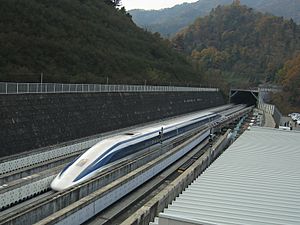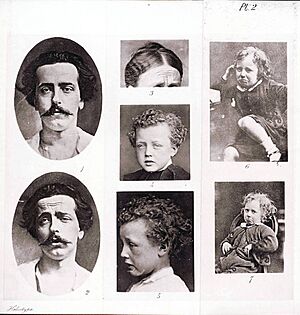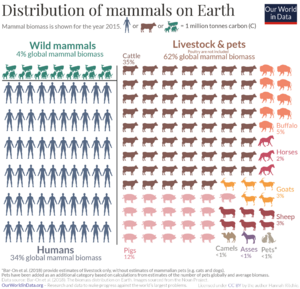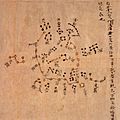Mankind facts for kids
Mankind is another word for the human race. It refers to all the people living on Earth. We are also called human beings or simply humans. As a species, humans are known for their complex brains, ability to use tools, and unique ways of communicating.
Contents
What Makes Humans Special?
Humans are a very interesting species! We are known for our big brains, which help us think, solve problems, and create amazing things. This is why we can build cities, write books, and even travel to space.
Our Amazing Brains
Our brains are much larger and more complex than those of most other animals. This allows us to learn, remember, and imagine. We can understand complicated ideas and pass on knowledge from one generation to the next. This ability to learn and teach is a big reason why human societies have grown so much.
Tools and Technology
Humans are also known for making and using tools. From the earliest stone tools used by our ancestors to today's computers and smartphones, tools have helped us change our world. We use technology to build homes, grow food, travel, and connect with each other. This skill has allowed us to live in almost every part of the planet.
Language and Culture
Another special thing about humans is our ability to use complex language. We can talk about ideas, share feelings, and tell stories. Language helps us work together and build strong communities. We also create culture, which includes our art, music, traditions, and beliefs. Culture is how we express ourselves and understand the world around us.
Where Do Humans Come From?
Scientists believe that humans evolved over millions of years from earlier ape-like ancestors. This process is called human evolution. Early humans slowly developed traits like walking upright on two legs and having larger brains.
Early Human Ancestors
One famous early human ancestor is Lucy, an Australopithecus afarensis whose skeleton was found in Africa. She lived about 3.2 million years ago. Over time, different types of humans appeared, like Homo habilis (who made simple tools) and Homo erectus (who learned to control fire).
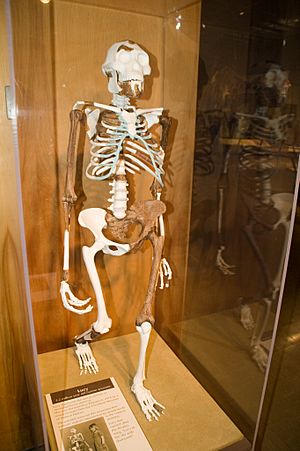
The Rise of Modern Humans
Modern humans, known as Homo sapiens, first appeared in Africa about 300,000 years ago. From Africa, our ancestors spread out across the world, adapting to different environments. They developed new tools, hunting methods, and ways of living. This journey led to the diverse human populations we see today.
Humans and Our World
Humans have had a huge impact on Earth. Our population has grown a lot, and we have changed landscapes, built cities, and developed agriculture.
Our Global Footprint
Today, there are billions of humans living on Earth. We use many resources, like water, food, and energy. Our activities can affect the environment, sometimes causing problems like pollution or climate change. Because of this, it's important for us to find ways to live sustainably and protect our planet.
Connecting Across the Globe
Even though humans live all over the world, we are more connected than ever before. Thanks to technology like the internet and fast transportation, people from different countries can communicate and share ideas easily. This helps us learn from each other and work together on global challenges.
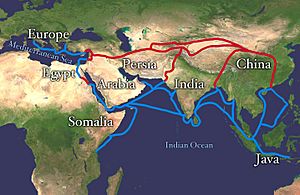
Other Meanings of Mankind
While "mankind" usually means the human race, the word has also been used in other ways:
- Mankind is the stage name of Mick Foley, a famous professional wrestler born in 1965.
- Mankind is the name of a play from the 15th century.
- Mankind is also the title of a computer game from 1998.
Images for kids
-
Routes taken by barbarian invaders of the Roman Empire during the Migration Period
-
A 10 mm human embryo at 5 weeks
-
Shango, the Orisha of fire, lightning, and thunder, in the Yoruba religion, depicted on horseback
-
The Dunhuang map, a star map showing the North Polar region. China circa 700.
See also
 In Spanish: Ser humano para niños
In Spanish: Ser humano para niños
 | Lonnie Johnson |
 | Granville Woods |
 | Lewis Howard Latimer |
 | James West |


